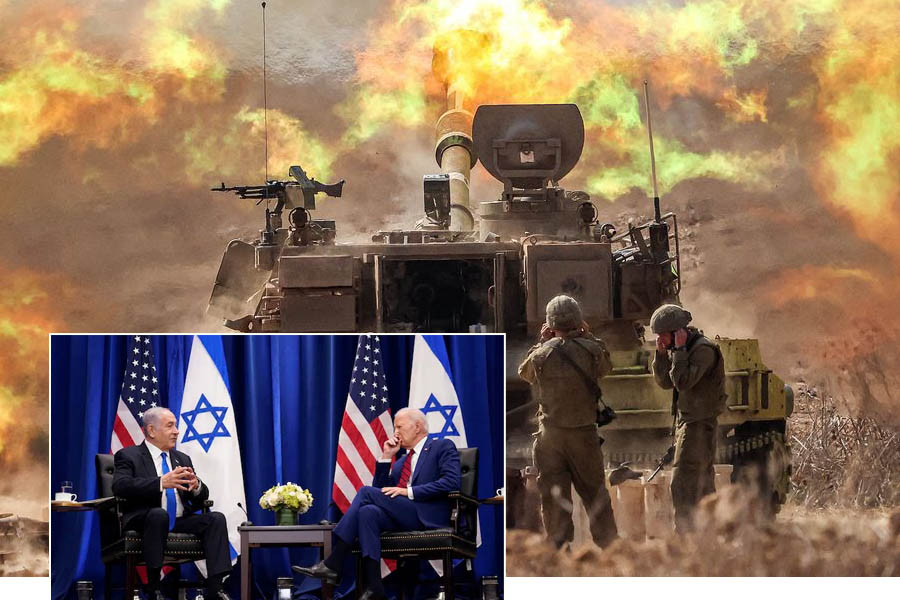
Jerusalem, Israel - The ongoing conflict between Israel and Hamas has escalated to alarming levels, prompting swift responses from world leaders and organizations as the region teeters on the brink of a humanitarian crisis. Here's a comprehensive update on the unfolding situation:
International Leaders' Response:
1. United States: In a significant move, President Joe Biden announced his visit to Israel on Wednesday, signaling strong support for the nation during these trying times. Secretary of State Antony Blinken confirmed that Biden's visit aims to reaffirm solidarity with Israel and discuss strategies to minimize civilian casualties while ensuring the flow of humanitarian aid to Gaza. Additionally, the U.S. has ordered 2,000 troops to prepare for a possible deployment to support Israel, emphasizing their commitment to regional stability.
2. Germany: German Chancellor, confirming his travel to Israel, highlights the global concern over the escalating conflict. The international community is closely monitoring developments and expressing solidarity with the affected populations.
3. European Union: The EU has announced plans to airlift humanitarian aid to Egypt, intending to support Gaza residents affected by the conflict. Humanitarian assistance remains a top priority for global organizations in this crisis.
Situation on the Ground:
1. Hostages and Displaced Citizens: The crisis has left 199 individuals held hostage by Hamas, amplifying the urgency of international interventions. The Israeli military revealed that approximately 500,000 Israelis have been displaced within the country due to the conflict, underscoring the magnitude of the crisis.
2. Humanitarian Aid and Diplomatic Efforts: Efforts are underway to facilitate the delivery of humanitarian aid to civilians in Gaza. The United States, in collaboration with Israel, is developing plans to ensure aid reaches those in need without benefiting Hamas. These discussions also explore the creation of safe zones to protect civilians from harm.
3. Regional Escalation Concerns: With President Biden's visit imminent, questions arise about potential delays in ground operations. Israeli officials assert that the visit's purpose is not to hinder military operations but to minimize the risk of regional escalation, highlighting the delicate balance between international diplomacy and national security imperatives.
Challenges Ahead:
1. Humanitarian Crisis in Gaza: The World Health Organization (WHO) has expressed concerns over Gaza's dwindling water supply, further exacerbating the already dire humanitarian situation. Addressing immediate water needs and ensuring access to essential services remain critical priorities.
2. Ongoing Military Operations: The Israeli Defense Forces (IDF) continue their preparations for enhanced military operations, focusing on dismantling Hamas and its military capabilities. Challenges persist, particularly in preventing Hamas fighters from relocating to different areas, underscoring the complexities of the conflict.
3. International Collaboration: As leaders converge in Israel and the region, collaboration among nations becomes vital. Coordinated efforts are necessary to de-escalate tensions, provide humanitarian aid, and work towards a lasting resolution to the crisis.
The international community's response to the Israel-Hamas conflict reflects the gravity of the situation and the urgent need for concerted action. As leaders from across the globe mobilize, the focus remains on protecting civilians, ensuring humanitarian assistance, and striving for a peaceful resolution. The world watches with bated breath, hoping for a swift end to the conflict and a path towards lasting peace in the region.